Isolation Gowns
| Name: | Isolation Gowns |
| Model No.: | ISOLATION GOWNS |
| Material: | Lightweight Spun-bond Polyethylene |
| Packaging: | Individual packed in paper&plastic sterile bag, or customized packing |
| Product description: | Disposable and EO sterilizable |
| Keywords: | Isolation Gowns,Disposable Isolation Gowns,Medical Isolation Gowns,Sterile Isolation Gowns |
| Sample: | Available |
| Lead time: | 5 days |
| MOQ: | 1000pcs |
| Payment Term: | T/T in advance |
| Country of Original: | China |
| Port of Loading: | Qingdao |
| Factory Address: | Changyuan,China |
| Office: | Zhengzhou,China |
| Inquiry |
Product Description
Lightweight & Breathable Isolation Gowns
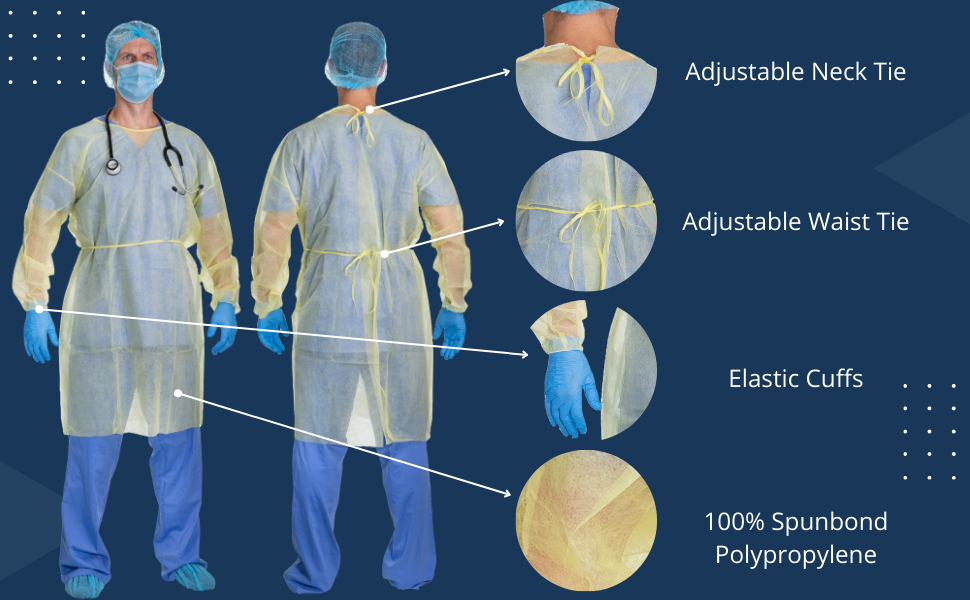
Adjustable ties at back of neck and waist for comfortable universal fit
Elastic cuffs around wrists for sturdy fit around gloves
Made of spun-bound polypropylene with anti-static coating, fluid resistant
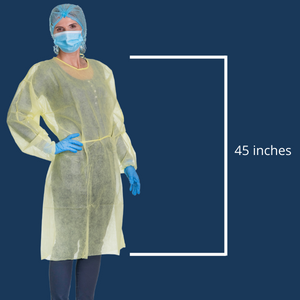
Length: 45 inches
Style: Rear Entry with Attached Ties & Neck Ties
Fabric Weight: 25 grams
Cuff Style: Elastic Cuffs
Material: Spun-bound Polypropylene
Protective Procedure Gown
Yellow, Disposable, one-size-fits-all, Polypropylene Isolation Gown. Latex free, rear entry style with attached back and neck ties for a secure, comfortable fit.
Isolation gowns are disposable protective garments worn in healthcare, lab, and industrial settings to act as a barrier between a person and potentially infectious materials, such as blood, bodily fluids, and other contaminants. They are a critical piece of personal protective equipment (PPE) designed to cover the torso, arms, and to the wrists, protecting both the wearer and others from the spread of microorganisms. Isolation gowns are typically made of fluid-resistant materials like polypropylene and are discarded after a single use.
Purpose and Function
Containment:
Isolation gowns prevent the spread of infection by containing microorganisms that might be on a patient or in a particular environment.
Protection:
They protect the healthcare worker's clothing and skin from contamination with blood, body fluids, secretions, and excretions.
Barrier:
The gowns provide a physical barrier against potential pathogens, which is essential in situations with a risk of fluid exposure.
Key Features
Coverage:
A properly worn isolation gown fully covers the torso and arms, from the neck to the end of the wrists.
Fastening:
Gowns are secured at the back of the neck and waist to ensure a snug fit and prevent exposure.
Material:
They are often made from lightweight, non-woven materials such as polypropylene, sometimes with a coating for increased fluid resistance.
Disposable:
Most isolation gowns are designed for single use and are discarded after each patient interaction or exposure event.
How they are Used
Infection Control:
Isolation gowns are a key part of standard precautions for controlling infection in healthcare settings.
Patient Care:
They are worn during patient care activities where contact with contaminated materials is anticipated.
Environments:
Beyond healthcare, they are also used in laboratories and industrial environments where contamination is a risk.

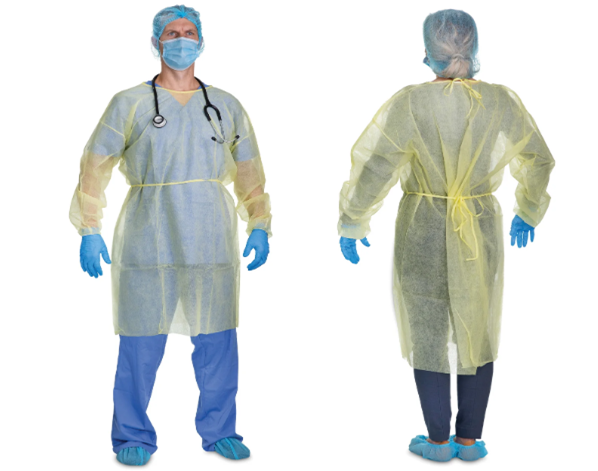
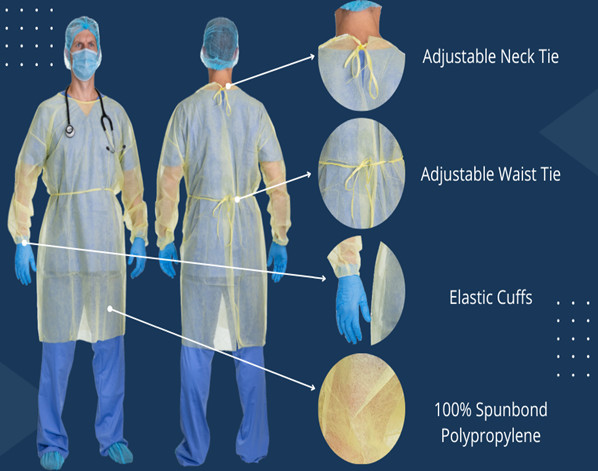
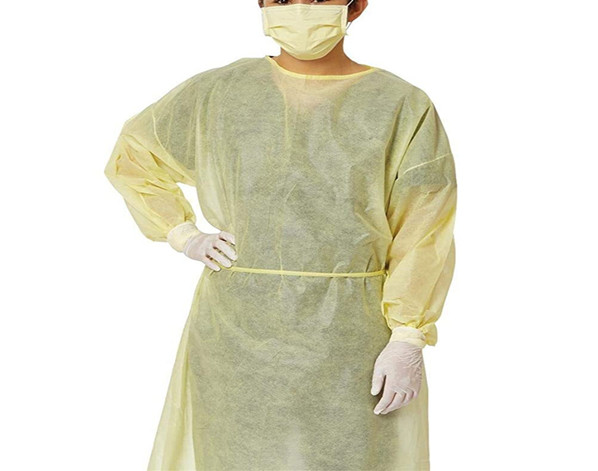
 Send Email
Send Email